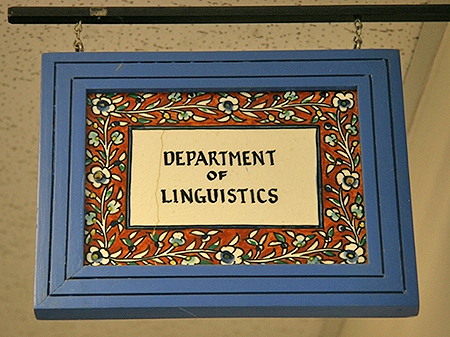
Linguistics ETDs
Publication Date
7-1-2014
Abstract
Research on spoken language bilinguals has shown that there is a significant relationship between socioeconomic status (SES) and literacy outcomes. The mechanism of SES as a predictor of literacy success has two competing explanations. One assumes a direct impact of SES on literacy through expanded opportunities to read and better maternal mediation of literacy activities; the other assumes an indirect relationship because SES has been shown to influence first language (L1) and second language (L2) spoken language proficiency which impacts literacy development. American Sign Language-English deaf bilingual children exhibit a unique profile because L2 literacy is achieved without prior development of spoken L2 proficiency. This provides an opportunity to evaluate the role of SES without the confound of spoken language proficiency influencing literacy development. To date, no studies have investigated the effects of SES on L2 literacy in ASL-English bilinguals. This study aims to determine whether SES and L1 language proficiency account for variation in signing bilinguals L2 literacy success, and to help identify specific needs during the process of achieving literacy outcomes. Measures of SES, ASL proficiency and English reading proficiency were collected from a sample of 184 deaf participants. Multiple regression indicates that although SES and ASL are not positively correlated, both factors in a single regression analysis were significant predictors of reading proficiency in signing bilinguals. We address the implications of these findings for educational reform in schools with deaf student populations.
Project Sponsors
Visual Language and Visual Learning
Language
English
Keywords
Socioeconomic Status, Language, Literacy, ASL, Bilingualism
Document Type
Thesis
Degree Name
Linguistics
Level of Degree
Masters
Department Name
Department of Linguistics
First Committee Member (Chair)
Hauser, Peter C.
Second Committee Member
Shin, Naomi
Recommended Citation
Twitchell, Paul. "THE ROLE OF SES AND ASL FOR LITERACY SUCCESS IN ASL-ENGLISH BILINGUALS." (2014). https://digitalrepository.unm.edu/ling_etds/37

Comments
Submitted by Paul Twitchell (ptwitch@unm.edu) on 2014-05-19T22:21:49Z No. of bitstreams: 1 PTwitchell Thesis14.pdf: 437785 bytes, checksum: b40ae26b14977242c8039f2ddbb5dae5 (MD5), Approved for entry into archive by Doug Weintraub (dwein@unm.edu) on 2014-09-12T16:53:36Z (GMT) No. of bitstreams: 1 PTwitchell Thesis14.pdf: 437785 bytes, checksum: b40ae26b14977242c8039f2ddbb5dae5 (MD5), Made available in DSpace on 2014-09-12T16:53:36Z (GMT). No. of bitstreams: 1 PTwitchell Thesis14.pdf: 437785 bytes, checksum: b40ae26b14977242c8039f2ddbb5dae5 (MD5)